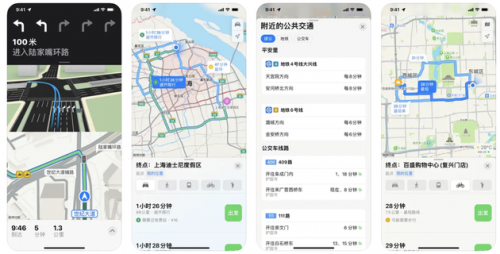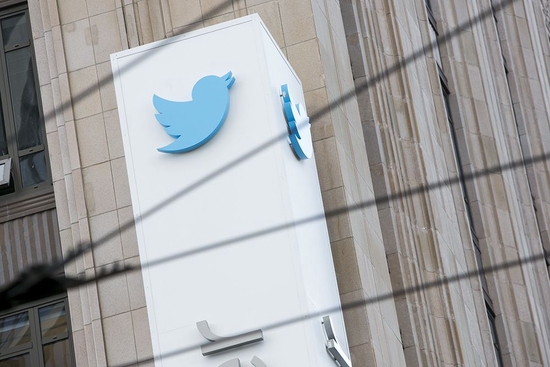your current location is:Home > Finance > depthHomedepth
iPhone 14 "reduces and does not increase prices", Apple is too shrewd

Author / Marutoyama
Although many previous news indicated that the price of the new generation iPhone will be increased, many people were relieved by the final price announced at the press conference this morning.
Except for the new iPhone 14 Plus, the starting prices of the other three models are exactly the same as the previous models.
However, at a time when the material cost of the industry chain has increased significantly, maintaining the price seems to require users to pay a certain price. For example, the iPhone 14/14 Plus directly uses the previous generation A15 chip.
I have to say that this behavior is indeed "very apple". Just like the cancellation of the charging plug before, until today, no Android manufacturer has dared to take this risky step, let alone the use of the previous generation SoC. A few years ago, the Android manufacturer did not use the X-axis vibration motor. A burst of scolding.
Of course, Apple's competitiveness in the Android camp will not be weakened. On the one hand, the A15 Bionic chip is still unmatched by Android flagship SoCs in terms of performance and energy consumption. On the other hand, Apple has re-adjusted its product portfolio pricing strategy, so that models of different versions and memory capacities are just stuck on the demand expectations of consumers, which can be said to be superb.
In this new iPhone series, the only widely criticized is the basic version of the iPhone 14. As the backbone of the previous two generations of products, this model has maintained a long-term share of more than 50% in the sales of Apple's new models. On the new generation of basic iPhone 14, the upgrades that need to be looked for with a magnifying glass seem to tell users: "Don't buy it, it's not worth it."
Just earlier this month, the latest report released by industry analysis firm Counterpoint Research showed that in the second quarter of 2022, Apple's smartphone market share in the United States exceeded 50% for the first time, surpassing Android phones to become the first.
 Image source: Counterpoint Research
Image source: Counterpoint ResearchThis is an important historical node. As the region with the highest smartphone penetration rate in the world, Android has stabilized iOS in the US mobile phone market with its open and free features over the past decade. But at the moment, Apple chooses to "rotten" its leading products, which seems a bit unreasonable.
The only explanation is that the "base iPhone" has ended the role Apple has given it.
iPhone needs price anchor
The biggest change in the new generation of iPhone is the removal of the original mini model, which was not popular, and the Plus model, which was widely acclaimed in the iPhone 6/6S era, officially returned.
Regarding the iPhone mini, some people think that it is the most failed model in the history of the iPhone, because in terms of shipments, the iPhone 12 mini accounted for 6% of shipments after its release, and when the iPhone 13 mini model was released, This figure has dropped to 3%.
It should be noted that the material cost of the mini model is not cheaper than the "basic model".
On the one hand, Apple needs to create a new mold for the mini model separately, as well as devices of different sizes to fit into the narrow body. On the other hand, individual components are actually "smaller and more expensive", such as MIM (metal powder injection molding) components.
This extends a question: For the mini models with cheap prices and no reduction in material costs, why does Apple insist on continuing the iteration of the iPhone 12 series on the 13 series after the sales of the iPhone 12 mini failed?
The reason is that the existence of the two generations of mini models is not only to meet the needs of "small screen enthusiasts", but also to serve as a price anchor.
Taking the iPhone 12 series as an example, the biggest improvement of this generation over the previous generation is the support for 5G communication, and the corresponding starting price has also increased from $699 of the previous iPhone 11 to $799.
The problem is that this is already October 2020, and the 5G flagship models in the Android camp have been updated twice, just because the addition of 5G communication is difficult to convince consumers to pay for the extra $100.
At this time, the attribute of the "price anchor" of the mini model is particularly critical. Because the shortcomings of this "small-screen flagship" are unbearable for some users.
The message Apple hopes to convey to users is that compared to the $699 iPhone 12 mini model, the iPhone 12 supports dual-card dual standby, has a larger screen and a longer battery life, so the extra 100 Is the dollar worth it?
On this generation of iPhone 14 models, Apple's biggest concern is how to stabilize product pricing.

Compared with the smartphone industry in the past two years, the current industry competition pattern is very cruel: the dividend period of the 5G replacement wave has already been exhausted, the innovation bottleneck has clearly appeared in the industry, and the consumer electronics market demand has become increasingly weak.
In this context, Apple cannot adjust the price of the entire system just by the blessing of a technology or the release of a concept, as in the past. But at the same time, global inflation has increased the material cost of the industry chain in an all-round way. If you want to guarantee profits, you can only use the relatively entry-level iPhone 14/14 Plus to make these two models at the starting price. The hardware cost is reduced by keeping the stock SoC unchanged.
Of course, as mentioned above, if the mini model is retained in this generation of products, its hardware cost may even be higher than that of the basic version. Models are kept for no reason.
The iPhone needs a new price anchor, and this task naturally falls on the shoulders of the base iPhone 14.
So we can see that this generation of iPhone 14 has almost no upgrades. Except for the front camera with greater light intake, larger CMOS, and satellite communication, almost all the functional upgrades mentioned at the press conference can be passed through OTA to achieve.
This base iPhone 14 is arguably the most lackluster model in Apple's history, but that's what Apple wants to see.
If Apple tells users that "our new phone uses the previous generation chip, but the price has not increased", this is absolutely unacceptable to users, but if Apple says "you can upgrade to a large-screen iPhone for only $100 more", I am afraid that Can be understood by some users.
iPhone advantage still?
Although Apple uses a "stock SoC" on the iPhone 14/14Plus models, this does not mean that the competitiveness of the iPhone will be diminished.
For now, the 5GPU version of the A15 Bionic is still significantly ahead of Qualcomm's contemporaries in performance. In 3D Mark's Wild Life test, the iPhone 13 Pro with this chip outperformed the Snapdragon 8+ by about 15%. In the CPU test, especially in terms of single-core performance, the former has a crushing advantage over the latter, which may not be able to surpass after the release of the Snapdragon 8 Gen2.
What's more, this new generation of iPhone 14 Plus has the potential to become a phenomenal product.
In 2014, IDC has counted the sales data of iPhone 6/6 Plus. In the first six weeks of this model's release, iPhone 6 Plus shipments accounted for as much as 60%, which confirmed Apple's move towards larger screens. Determination.
However, after the iPhone 11 model, the price difference between the large-sized iPhone 11 Pro Max and the basic version was too large, which led to a decrease in the proportion of large-sized iPhone shipments, a problem that continues to this day. Of course, the Pro Max model cannot be simply understood as a "large-screen iPhone", because in many functions, especially in terms of imaging, the previous generations of Pro Max have obviously improved significantly from their contemporaries.
However, for many consumers, they don't have such a need for "cinematic camera", all they need is a larger screen size than 6.1 inches to accommodate the stacked gestures in the system. In this context, the iPhone 14 Plus can fully meet their needs at a lower price.
In addition, on this generation of iPhone, Apple's emphasis on the iPhone 14 Pro/14 Pro Max models has also increased significantly.
In terms of software, although Apple still uses the "Pill Screen" that has been repeatedly whipped by some obsessive-compulsive users, the design of the "Smart Island" is really eye-catching. The shortcomings of Android phones have been turned into advantages by Apple through its excellent UI design. However, now the pressure is on the application developers. How to design small components suitable for the application for this "smart island" is a difficult problem they need to face.
 The design of "Smart Island" is amazing
The design of "Smart Island" is amazingIn terms of hardware, Apple did not reveal at the press conference how much the performance of the A16 Bionic has improved over the previous generation, but one thing is certain, the cost of this generation of SoCs must be much higher than that of the A15 Bionic.
As early as the third quarter of last year, TSMC had said that the price of its chip foundry services would increase by 10%-15%. In February this year, according to the "Economic Times", in order to ensure the reorganization of production capacity of new iPhone and other equipment, Apple has accepted the price increase and contracted TSMC's 120,000-150,000 4nm production capacity, and the average price of this batch of chips is higher than before. Also up 8%-10%.
In fact, the profit margins of the iPhone Pro/Pro Max models are not much higher than those of the base iPhone.
Previously, Tom's Guide disassembled the iPhone 13 series models, and the report showed that the iPhone 13 Pro Max with 256GB capacity was priced at $1,199, and the material cost was $438, accounting for 36.5% of the cost; the iPhone 13 512GB was priced at $1,099, with materials The cost is about 407 US dollars, and the cost accounts for 37.1%, which is almost the same.
Under the premise of a sharp rise in chip prices, Apple can guarantee that its starting price is the same as the previous generation, which is really rare. It can be seen that in the face of the current Red Sea competition in the smartphone industry, Apple prefers to let the two high-end models of the iPhone 14 Pro/Pro Max support the market, although its hardware costs have increased significantly.
Of course, with the year-on-year decrease in net profit in the third fiscal quarter of 2022, Apple will not allow the profit margin to be further reduced, so Apple once again demonstrated its superb knife method: increasing the price difference between different memory versions, after all, although The starting price remains the same, but 128GB of memory is becoming less and less enough.
After the press conference, Bloomberg reporter Mark Gurman wrote, "The iPhone generally retains its previous appearance, while adding camera functions, satellite text messaging, and smart island design. Apple is betting on these new features, plus no The sharp price hike is enough to fend off competition from Samsung Electronics Co. and other smartphone rivals."
Although Mark Gurman, the "fruit blower", may not be objective enough in his position, in the previous earnings call, Cook said that the number of active iPhone devices in the third fiscal quarter of 2022 hit a record high in all regions. At the same time, he also emphasized that the number of users switching to the iPhone is also a record.
For now, in the price segment above $699, Apple is still hard to find competitors.
related articles
Article Comments (0)
- This article has not received comments yet, hurry up and grab the first frame~













